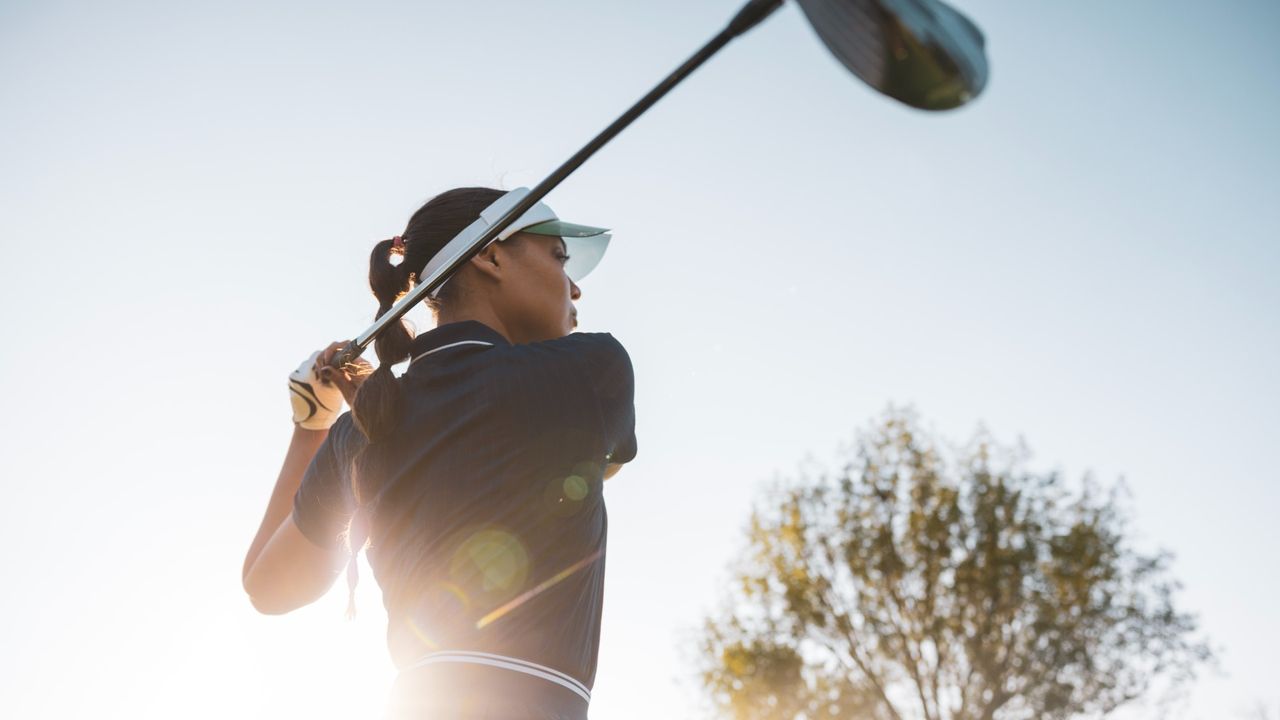Health
Golf Emerges as Key Cardio Exercise for Women in Menopause

According to Dr. Asimah Hanif, a general practitioner, golf can be a surprisingly effective way for women going through menopause to boost cardiovascular fitness and overall health. Unlike high-intensity sports, golf offers a low-impact alternative that not only burns calories but also supports bone density, which tends to decline during this stage of life.
Health Benefits of Golf for Women in Menopause
Engaging in cardiovascular activity is essential for maintaining heart and lung health. Golf stands out as a sport that promotes physical activity while being gentle on the body. Dr. Hanif emphasizes that the sport can stimulate bones and muscles, making it particularly beneficial for women facing menopausal challenges. “Some patients who visit our practice could benefit from the physical and mental boosts golf can provide,” she notes.
The benefits of golf extend beyond mere physical activity. Spending time outdoors while playing can significantly reduce stress levels and enhance mood. Walking the golf course contributes to daily step goals, promoting mindfulness through its combination of calm walking and focused play. This is especially important for women experiencing menopause, as it can help mitigate symptoms such as fatigue and anxiety.
Dr. Hanif points out that a round of golf not only burns calories but also engages various muscle groups, including the glutes, legs, core, and calves. These activities support joint health and can enhance overall fitness. The sustained, low-intensity exercise of a golf game provides cardiovascular benefits, improving circulation and potentially lowering blood pressure.
A Safe Haven for Active Women
Menopause can bring about various physical challenges, including pelvic floor instability and unexpected hot flashes, which can limit exercise options. Dr. Hanif highlights golf as a safe haven for women who seek to stay active despite these challenges. She explains, “Golf can provide a safe haven for women who want to exercise but are faced with menopausal challenges.”
For those concerned about energy levels, golf offers flexibility. Players can choose to play a shorter round or practice near the clubhouse, where they can rest as needed. This adaptability makes the sport accessible to a wider range of fitness levels.
Another often-overlooked benefit of golf is its contribution to light resistance training. Walking an entire golf course and pushing a cart provides gentle but effective loading of the skeletal system, which can help combat the natural decline in bone density associated with menopause. Dr. Hanif explains, “Throughout the menopausal phase, estrogen levels in the body are dropping, and this can disrupt the balance of bone remodeling that maintains density.”
In summary, the gentle yet sustained activity involved in playing golf can stimulate bones and slow the natural loss of bone density during and after menopause. For women looking to maintain their health and fitness during this transition, golf may offer an enjoyable and effective solution.
As more women seek ways to stay active during menopause, golf’s unique combination of physical, mental, and social benefits makes it a sport worth considering. With its low-impact nature and ability to foster community, golf could indeed be the answer for those looking to enhance their health during this pivotal stage of life.
-

 Technology4 months ago
Technology4 months agoDiscover the Top 10 Calorie Counting Apps of 2025
-

 Health2 months ago
Health2 months agoBella Hadid Shares Health Update After Treatment for Lyme Disease
-

 Health3 months ago
Health3 months agoErin Bates Shares Recovery Update Following Sepsis Complications
-

 Technology3 weeks ago
Technology3 weeks agoDiscover 2025’s Top GPUs for Exceptional 4K Gaming Performance
-

 Technology2 months ago
Technology2 months agoElectric Moto Influencer Surronster Arrested in Tijuana
-

 Technology4 months ago
Technology4 months agoDiscover How to Reverse Image Search Using ChatGPT Effortlessly
-

 Technology4 months ago
Technology4 months agoMeta Initiates $60B AI Data Center Expansion, Starting in Ohio
-

 Technology4 months ago
Technology4 months agoRecovering a Suspended TikTok Account: A Step-by-Step Guide
-

 Health4 months ago
Health4 months agoTested: Rab Firewall Mountain Jacket Survives Harsh Conditions
-

 Lifestyle4 months ago
Lifestyle4 months agoBelton Family Reunites After Daughter Survives Hill Country Floods
-

 Technology3 months ago
Technology3 months agoUncovering the Top Five Most Challenging Motorcycles to Ride
-

 Technology4 weeks ago
Technology4 weeks agoDiscover the Best Wireless Earbuds for Every Lifestyle









